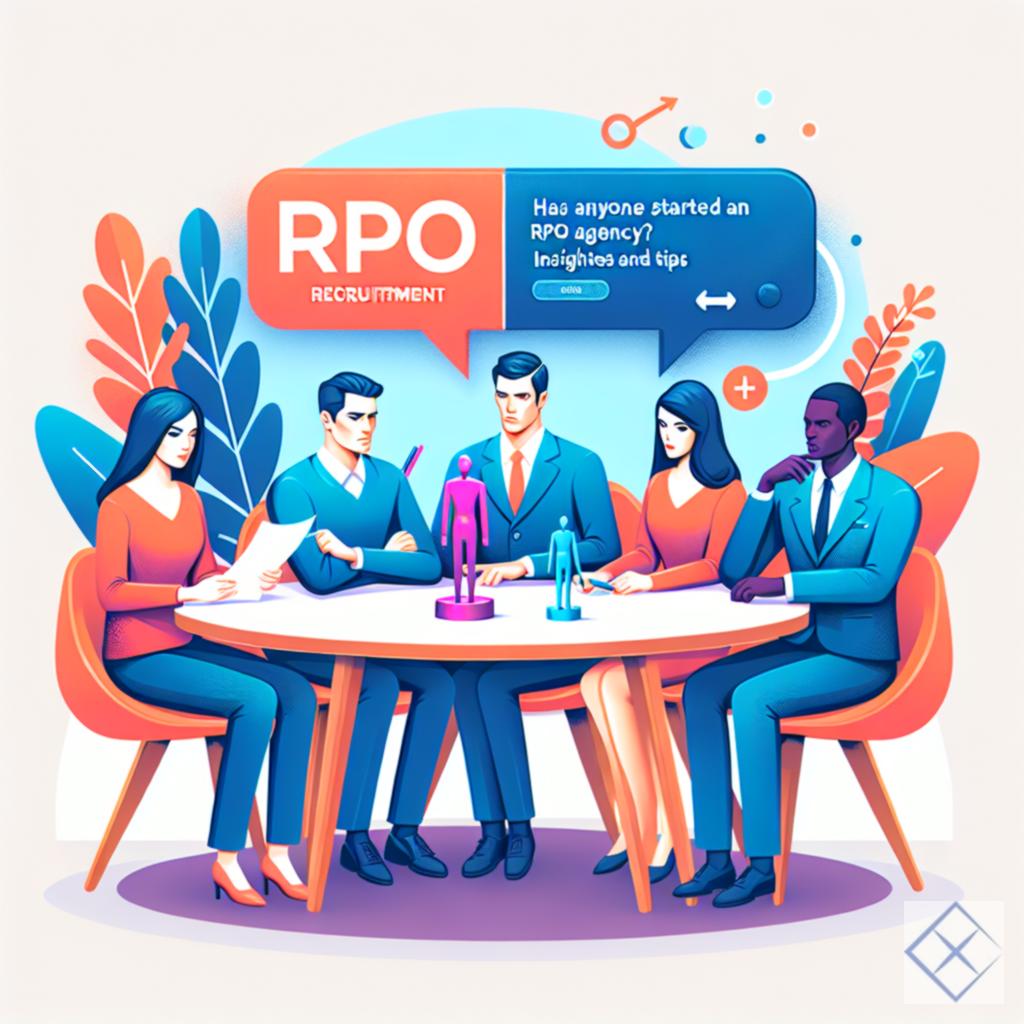Has anyone started an RPO agency

Has Anyone Started an RPO Agency? Insights and Tips
Starting a recruitment agency is no small feat, especially when you’re operating as a small team—just you and an assistant. The traditional model of contingency recruitment is familiar territory; however, the concept of Recruitment Process Outsourcing (RPO) is a fascinating avenue that many recruiters are beginning to explore. In this post, we’ll delve into the RPO model, its benefits, and provide insights on how to successfully pitch this service.
What is RPO?
Recruitment Process Outsourcing (RPO) is a strategic approach where businesses outsource all or part of their recruitment processes to an external provider. This can range from sourcing candidates to managing the entire hiring process. Unlike traditional contingency recruitment, which typically pays a fee only upon successfully placing a candidate, RPO agencies often charge a flat monthly fee, which can cover a predetermined number of placements throughout the year.
The Advantages of RPO
-
Predictable Cash Flow: One of the most significant benefits of an RPO model is the predictable income stream it provides. Instead of relying on one-off placements, you can count on a steady monthly fee that allows for better financial planning.
-
Value Proposition: By offering a flat fee for a set number of placements, you can market your agency as a cost-effective solution for companies that have ongoing hiring needs. This model often leads to greater client satisfaction, as businesses see the value in having a dedicated recruitment partner.
-
Stronger Client Relationships: The RPO model encourages longer-term partnerships. With a flat fee structure, clients are more likely to engage in open communication, leading to a deeper understanding of their hiring needs and culture.
Tips for Pitching Your RPO Services
1. Understand Your Client’s Needs
Before pitching your RPO services, take the time to understand the client’s hiring challenges. Are they facing high turnover rates? Do they struggle with sourcing qualified candidates? Tailor your pitch to address these specific pain points.
2. Showcase ROI
Prepare case studies or examples that demonstrate how your RPO services can lead to cost savings over time. Highlight metrics such as time-to-fill, candidate quality, and retention rates to showcase the value of a flat fee model.
3. Emphasize Flexibility
Clients often fear being locked into a rigid contract. Reassure them that your RPO model is flexible and can be adjusted as their hiring needs evolve. Offer a tiered service structure to accommodate different levels of hiring volume.
4. Build a Strong Brand
In a competitive landscape, having a strong brand can set you apart. Invest in marketing your agency as a thought leader in the recruitment space. Share insights, success stories, and industry trends through blogs, webinars, or social media to build credibility.
5. Foster Relationships with Stakeholders
Networking is key. Engage with HR professionals and decision-makers at potential client companies. Attend industry events and conferences to create connections that may lead to RPO opportunities.
Conclusion
Transitioning from a traditional recruitment model to an RPO agency can be a game-changer for your business. It offers predictable income, enhances client relationships, and provides a compelling value proposition. As you embark on this journey, keep in mind the importance of understanding your clients’ needs, emphasizing ROI, and building a strong brand.
Have you ventured into RPO services or considered it for your recruitment agency? What challenges or successes have you encountered? Share your experiences and let’s discuss best practices in this evolving recruitment landscape!